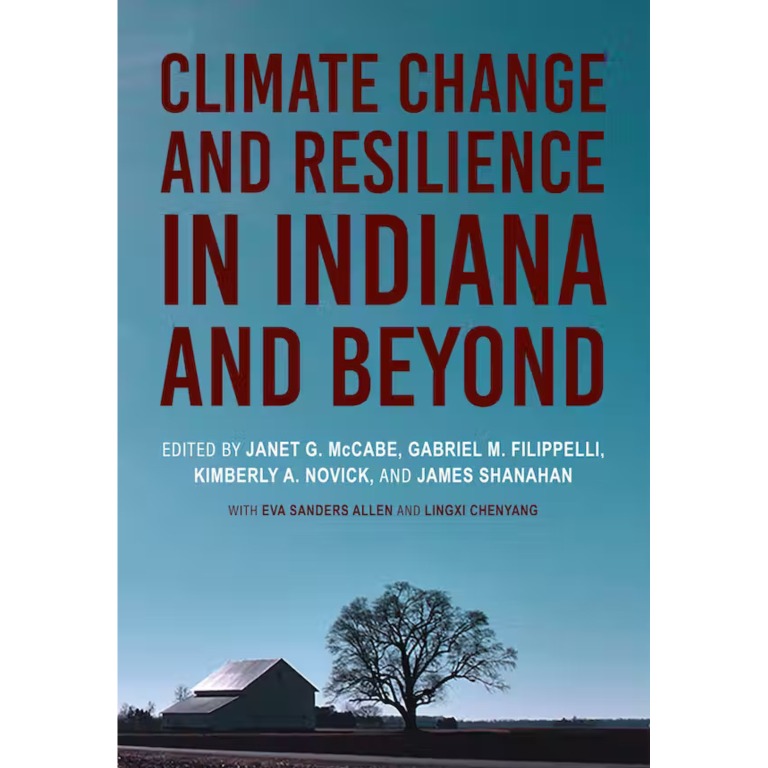A new book from Indiana University Press and the Environmental Resilience Institute shines a spotlight on the potentially devastating long-term impacts of climate change in Indiana and what Hoosiers can do to create resilient, equitable communities.
Climate Change and Resilience in Indiana and Beyond gives readers a detailed roadmap for how policymakers, community leaders, and engaged Indiana residents can interpret and navigate the stresses posed by environmental change to the state’s economy and health, while also protecting the natural resources and systems Hoosiers depend on.
Forty-six researchers, many of them ERI affiliates, contributed to the book, sharing their expertise on climate, water, energy, natural systems, and more. The work is a capstone of the Prepared for Environmental Change Grand Challenge, an IU initiative to help the state address environmental change that led to the creation of ERI in 2017.
Research by Indiana scientists projects the Hoosier State’s average temperature will increase 6 to 10 degrees Fahrenheit by 2100, with more instances of heavy rainfall and extreme heat waves. These changes are already evident in Indiana and the Midwest and will only become more pronounced in the decades to come without action.
“Climate change is here, and it is disrupting Hoosiers’ lives and Indiana’s economy more every year,” said Gabriel Filippelli, executive director of the Environmental Resilience Institute and a co-editor of the book. “That doesn’t mean we’re powerless to do something about it. In fact, in this book we make the case that everyone has a role to play in creating a more equitable, socially just, and resilient Indiana.”
Organized by topic, the book summarizes the latest research related to climate impacts affecting the state, including impacts to agriculture, biodiversity, forests, and cities. The authors also describe strategies and solutions to respond to these challenges, among them how to talk effectively to others about climate change and an overview of tools and resources developed by the institute to help communities understand their vulnerabilities and make a plan of action.
“Realizing a climate-equitable future will require action across all levels of government, in the private sector, and by individuals,” Filippelli said. “The more people who understand the power we possess collectively to create a resilient state for all Hoosiers, the better chance we have of meeting this global challenge.”
Learn more about the book Read a review of the book
About the Environmental Resilience Institute
Indiana University’s Environmental Resilience Institute brings together a broad coalition of government, business, nonprofit, and community leaders to help Indiana and the Midwest better prepare for the challenges of environmental change. By integrating research, education, and community, ERI is working to create a more sustainable, equitable, and prosperous future. Learn more at eri.iu.edu.



